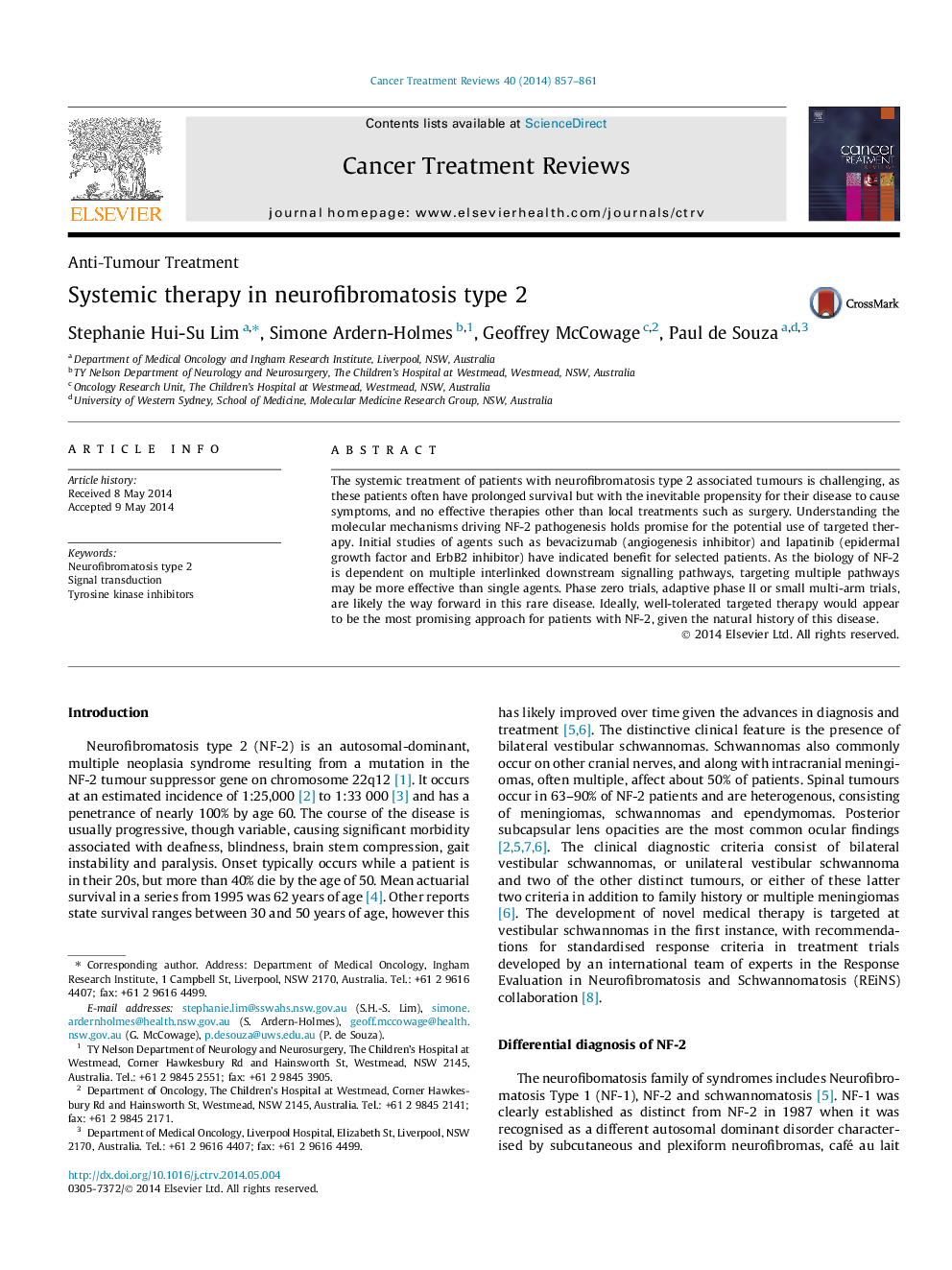| Article ID | Journal | Published Year | Pages | File Type |
|---|---|---|---|---|
| 3979885 | Cancer Treatment Reviews | 2014 | 5 Pages |
•Systemic treatment of neurofibromatosis type 2 associated tumours is challenging.•Understanding the molecular mechanisms holds promise for use of targeted therapy.•Targeting multiple pathways may be more effective than single agents.•Phase zero trials or adaptive phase II are likely the way forward.•Well-tolerated targeted therapy would be the most promising approach.
The systemic treatment of patients with neurofibromatosis type 2 associated tumours is challenging, as these patients often have prolonged survival but with the inevitable propensity for their disease to cause symptoms, and no effective therapies other than local treatments such as surgery. Understanding the molecular mechanisms driving NF-2 pathogenesis holds promise for the potential use of targeted therapy. Initial studies of agents such as bevacizumab (angiogenesis inhibitor) and lapatinib (epidermal growth factor and ErbB2 inhibitor) have indicated benefit for selected patients. As the biology of NF-2 is dependent on multiple interlinked downstream signalling pathways, targeting multiple pathways may be more effective than single agents. Phase zero trials, adaptive phase II or small multi-arm trials, are likely the way forward in this rare disease. Ideally, well-tolerated targeted therapy would appear to be the most promising approach for patients with NF-2, given the natural history of this disease.
